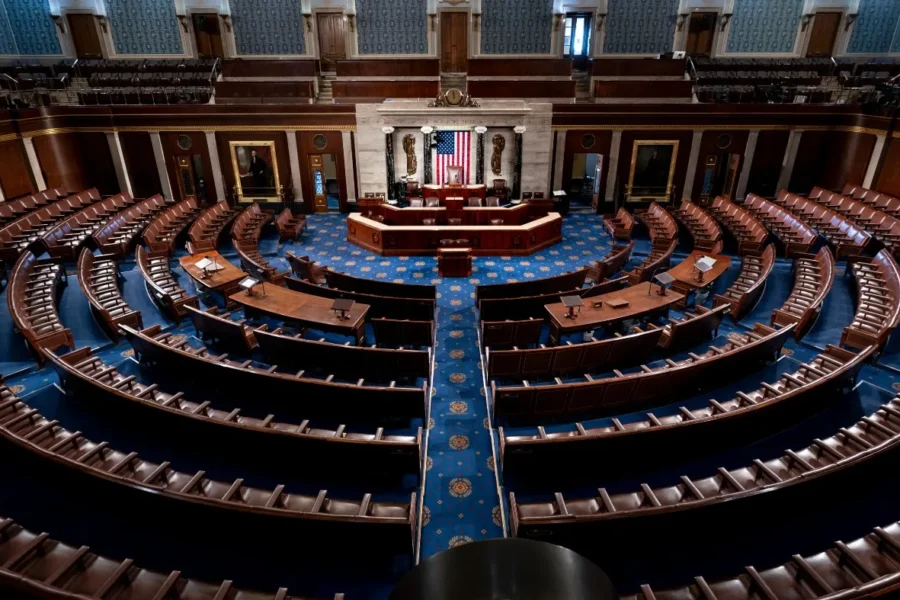What’s At Stake: States’ Ability to Protect Health and Safety of Women in Abortion Clinics from Dangerous Conditions and Practitioners
“Consistently, the abortion industry invests in lawyers to avoid investing in safeguards designed to protect women from dangerous conditions and substandard providers found behind the closed doors of abortion clinics,” said AUL’s Clarke Forsythe.
WASHINGTON, D.C. (06-08-16) – Americans United for Life, the nation’s leading advocate for protecting women’s health through commonsense legislation, has been front and center in the case before the Supreme Court, Whole Woman’s Health v. Hellerstedt (formerlyWhole Woman’s Health v. Cole). Authors of a significant body of model legislation, AUL attorneys were advocates for the pro-life requirements enacted in Texas in 2013, now in court as a result of abortion industry objections to complying with the laws that protect women in other healthcare settings. AUL also filed an amicus curie (friend of the court) brief, along with co-counsel the Bioethics Defense Fund, representing more than 460 Republicans and Democrats legislators from across the nation and demonstrating to the Court that state efforts to protect women through reasonable health and safety standards must be upheld for reasons of common sense and medical reality. “While court watchers wait to learn how the eight current justices view Texas’ efforts to protect women, it’s important to remember that even the most pro-abortion justices have always viewed women’s safety as something that the states can act to protect,” noted AUL Acting President and Senior Counsel Clarke Forsythe, author of the premier book on the history of Roe v. Wade, Abuse of Discretion.
He continued: “To rule in favor of women’s health and safety, the justices will simply have to remember what was decided more than 40 years ago in Roe: a state’s legitimate interest in regulating abortion ‘obviously extends at least to [regulating] the performing physician and his staff, to the facilities involved, to the availability of after-care, and to adequate provision for any complication or emergency that may arise.’”
Legal scholars also note that in both Gonzales v. Carhart and Planned Parenthood v. Casey, the Court affirmed Roe v. Wade’s “essential” holding, which explicitly included not only the woman’s “right” to “choose to have an abortion” without “undue interference from the State,” but also “the principle that the State has legitimate interests from the outset of the pregnancy in protecting the health of the woman….” Gonzales v. Carhart, 550 U.S. 124, 145; Planned Parenthood v. Casey, 505 U.S. 833, 846 (both citing Roe v Wade, 410 U.S. 113). In fact, Roe “was express in its recognition of the State’s ‘important and legitimate interests in preserving and protecting the health of the pregnant woman….’” Casey, 505 U.S. at 875-76.
AUL Experts available for interviews on the issues at stake in the Texas case:
AUL Acting President and CEO Clarke Forsythe, foremost legal expert on abortion law, author of Abuse of Discretion: The Inside Story of Roe v. Wade, published by Encounter Books in 2013. His 27 years of service to AUL includes founding and directing the AUL Project in Law & Bioethics and arguing cases before federal and state courts as well as testifying before Congress and state legislatures.
AUL Vice President of Legal Affairs Denise Burke, editor of Defending Life, author of much of AUL’s life-affirming legislation including abortion provider health and safety standards, and co-signer of AUL’s amicus brief filed in the Texas case.
AUL attorney Anna Paprocki, contributing author to Defending Life, co-author of AUL’s Constitutional Law and Abortion primer for law school students, and a leading expert on Planned Parenthood’s predatory corporate practices.
The case, Whole Woman’s Health v. Hellerstedt, involves Texas House Bill 2, a measure enacted in 2013 with a number of life-affirming provisions. Placing profit above women’s health, abortion providers challenged provisions requiring them to meet the same health and safety standards as ambulatory surgical centers (ASCs), as well as to have admitting privileges at a local hospital. In June 2015, the Fifth Circuit upheld the provisions, and abortion providers appealed to the U.S. Supreme Court in their continued effort to avoid compliance with these commonsense requirements.
AUL has been active in this case since its inception. In addition to providing expert consultation on the constitutionality of HB 2 before and after it was enacted, AUL filed an amicus brief in the Fifth Circuit on behalf of Texas Legislators.
AUL’s Supreme Court brief, available here, was filed on behalf of more than 460 legislators from states with provisions similar to the Texas health and safety standards. The brief demonstrates that the Supreme Court has promised “wide discretion” to state lawmakers in the regulation of abortion and has given significant deference to legislative determinations as to the medical necessity for enacting health and safety regulations.
For more on the health risks of abortion for women, click here.




